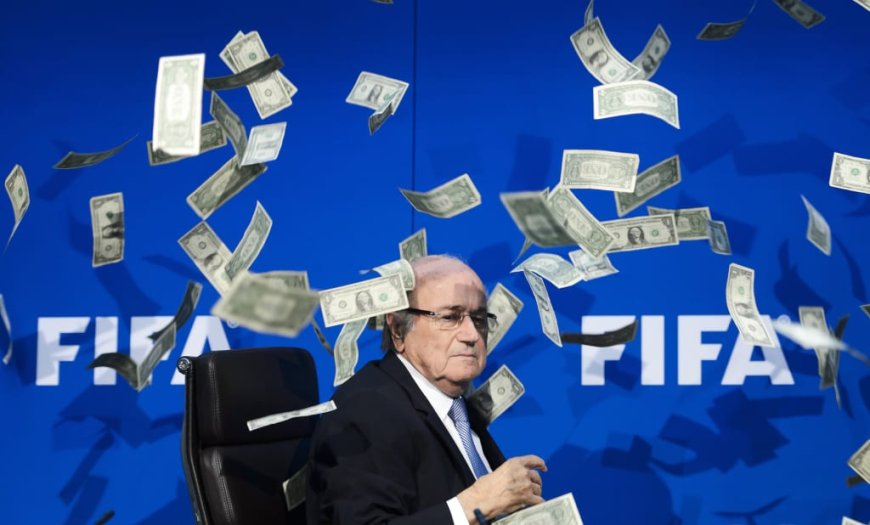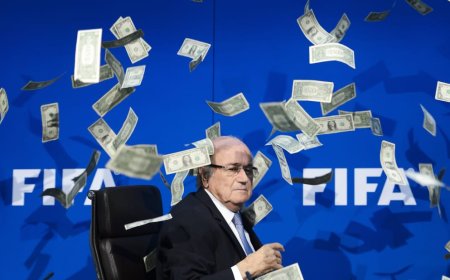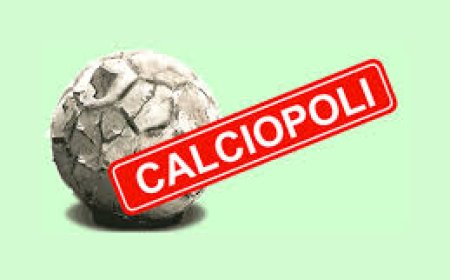Biggest Football Scandals and Conspiracy Theories
Football has seen its share of dark episodes – from confirmed scandals involving match-fixing, corruption, and doping, to enduring conspiracy theories about rigged matches and political interference.

Football has seen its share of dark episodes – from confirmed scandals involving match-fixing, corruption, and doping, to enduring conspiracy theories about rigged matches and political interference. This report outlines the most notorious cases, dividing them into confirmed scandals and conspiracy theories, and explains their impact and consequences. Each incident is summarized with key details, and credible sources are cited throughout.
-
Confirmed Scandals
1.1 Match-Fixing and Bribery Scandals
Calciopoli (Italy, 2006): Italian football was rocked by a match-fixing scandal known as Calciopoli. Phone taps revealed that top Serie A clubs – including Juventus, AC Milan, Fiorentina, Lazio, and Reggina – colluded with referee selectors to influence referee appointments. Juventus were stripped of their 2004–05 Serie A title and relegated to Serie B, and the 2005–06 title was re-assigned to Inter Milan. This scandal tarnished the reputation of Serie A and led to an exodus of star players from Italy.
Totonero (Italy, 1980): Italy faced another fixing scandal known as Totonero. Several Serie A and Serie B matches were fixed in a betting scheme, leading to AC Milan and Lazio being relegated and star players banned.
Marseille Bribery Scandal (France, 1993): Olympique de Marseille bribed opponents to secure a domestic league win. The club was stripped of the 1992–93 French title, banned from defending their European Cup, and relegated. Club president Bernard Tapie served prison time, and multiple players and staff were banned.
“Disgrace of Gijón” (World Cup 1982): The match between West Germany and Austria ended with both teams passively playing out a mutually beneficial result, eliminating Algeria. The incident led FIFA to change World Cup scheduling so final group games are played simultaneously.
Anderlecht–Nottingham Forest Bribery (UEFA, 1984): Anderlecht overcame a deficit amid questionable refereeing, and it was later revealed the referee was bribed. Anderlecht was banned from European competition for one year.
Bundesliga Referee Scandal (Germany, 2005): Referee Robert Hoyzer admitted to fixing matches for a betting syndicate. He was banned for life and jailed, prompting stricter referee oversight.
Turkish Match-Fixing Scandal (2011): Turkish authorities uncovered widespread match-fixing in the Süper Lig, implicating Fenerbahçe and other clubs, leading to UEFA bans and new national laws.
Other Notable Fixing Cases: Match-fixing has plagued countries like England and China, leading to bans, relegations, and voided results.
1.2 Financial Corruption in Governing Bodies
FIFA Bribery Scandal (2015): U.S. investigations exposed over $150 million in bribes over two decades, leading to arrests, resignations, and reforms. It cast doubt on World Cup bids and revealed systemic corruption.
Other FIFA/UEFA Corruption Cases: Previous cases included cash-for-votes scandals and secret repayments of kickbacks.
1.3 Doping and Illegal Drug Scandals
Diego Maradona’s Doping Bans: Maradona failed a drug test for a banned stimulant during the 1994 World Cup and was expelled. He also served a ban for cocaine use in 1991.
Juventus Blood Doping Allegations: Juventus’s doctor was accused of administering EPO in the mid-90s. He was initially convicted but later acquitted.
State-Sponsored Doping Theories: Research suggested West Germany’s 1954 World Cup win may have been aided by stimulants, though not definitively proven.
Consequences: Doping cases led to suspensions, tarnished legacies, and stricter testing protocols.
1.4 Other Cheating Incidents and Misconduct
Chilean “Maracanazo” (1989): Goalkeeper Roberto Rojas faked an injury with a hidden razor blade. Chile was banned from the 1994 World Cup, and Rojas received a lifetime ban.
Mexico “Cachirules” Age Fraud (1988): Mexico fielded over-age players in a youth tournament, resulting in a ban from the 1990 World Cup.
Miscellaneous Scandals: Other scandals include financial irregularities, illicit payments in transfers, and widespread abuse cases.
Impact of Confirmed Scandals: Real scandals have led to stripped titles, relegations, bans, and reforms. They have also severely damaged fan trust.
-
Famous Conspiracy Theories
2.1 World Cup Conspiracy Theories
“Fixed” World Cups for the Host (1966 & 1974): Claims exist that these tournaments were rigged to benefit England and West Germany, though no concrete evidence exists.
Argentina’s “Rigged” Win (1978): Accusations persist that Argentina’s government colluded with Peru to secure a crucial win.
South Korea at the 2002 World Cup: Refereeing decisions favored South Korea against Italy and Spain, fueling suspicions of FIFA bias.
“The Anschluss Game” (1982): West Germany and Austria conspired on the field for a mutually beneficial result.
Other World Cup Theories: These include England’s “Wembley goal” in 1966 and Brazil’s mysterious loss in the 1998 final.
2.2 Club Football Conspiracy Theories
Rigged Cup Draws (“Hot Balls” theory): Claims that UEFA and FIFA rig draws using temperature-marked balls persist, though no proof exists.
The Franco Regime and Real Madrid: Allegations that Franco’s dictatorship helped Real Madrid dominate during his rule.
“Los Angeles Azules” – UEFA and Big Clubs: Theories suggest big clubs receive favorable treatment from referees and officials.
Denmark vs Sweden “Handshake” (Euro 2004): The 2-2 result that eliminated Italy sparked theories of Nordic collusion.
“Lasagne-Gate” (Premier League 2006): Spurs players’ food poisoning before a decisive match fueled sabotage theories.
Impact of Conspiracy Theories: These theories shape fan narratives, influence policy changes like VAR, and reflect the intense emotions surrounding football.
-
Conclusion
From confirmed scandals to enduring conspiracy theories, football’s history includes both real corruption and imagined plots. These episodes underscore the importance of transparency and integrity in the game. While reforms have been introduced, the sport remains vulnerable to both misconduct and the suspicion of it. Football’s global passion ensures that, whenever surprises occur, theories and scandals will never be far behind.
What's Your Reaction?
 Like
0
Like
0
 Dislike
0
Dislike
0
 Love
0
Love
0
 Funny
0
Funny
0
 Angry
0
Angry
0
 Sad
0
Sad
0
 Wow
0
Wow
0




